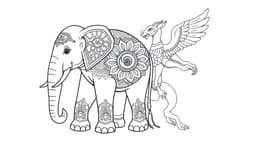Home / Health / Timing is Everything: How Your Body Clock Shapes Learning and Creativity
Timing is Everything: How Your Body Clock Shapes Learning and Creativity
16 Nov, 2025
Summary
- Evening types outperform morning types on cognitive tests by up to 13.5%
- Sleep duration of 7-9 hours is optimal for memory, reasoning, and processing
- Sleep after learning boosts memory consolidation, even in sleep-deprived individuals

According to a recent study, our natural sleep-wake cycles, known as "chronotypes," have a significant impact on cognitive performance. The research, conducted by Dr. Shankar Balakrishnan, a neurologist at Rela Hospital in Chennai, shows that evening types tend to outperform morning types on a variety of cognitive tests.
In one analysis, evening types scored about 13.5% higher than morning types, while in another group, the difference was around 7.5%. This is because evening types feel most alert and productive during the evening and nighttime hours, while morning types perform best earlier in the day, typically between 8:00 and 10:00 am.




